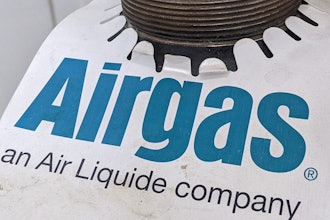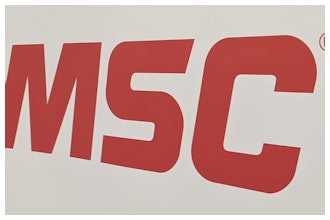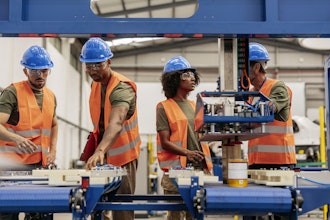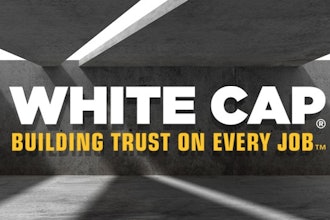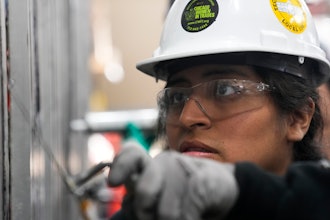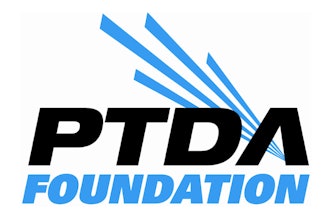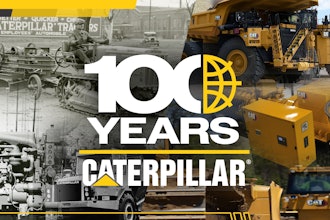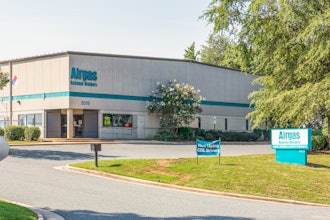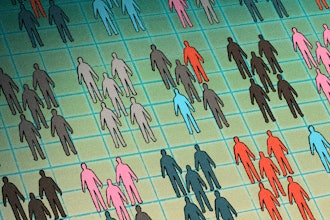
Industrial distribution, and industrial manufacturing in general, has always been a man’s world. Despite advancements in labor force demographics and the industry’s promotion and recruitment of women, the statistics still paint a picture of a landscape where men profoundly outnumber women.
According to the US Bureau of Labor Statistics, women comprised 29.5 percent of the American manufacturing workforce in 2020, essentially the same as 2019.
More granularly and specific to distributors, women comprised 30 percent of wholesale trade jobs in 2020; 32 percent of jobs in hardware and plumbing and heating equipment; 28 percent in machinery, equipment and supplies merchant wholesalers, 34 percent in warehousing and storage; 35 percent of stockers and order fillers; and 16 percent of parts salespersons.
One of Industrial Distribution’s most popular annual features is our Salary Report, where we segment the results by executives, middle managers (non-sales), and sales and sales management. In our 2020 Salary Survey conducted last June-July, only 16 percent of respondents were women. More specifically, 93 percent of executives were male; as were 76 percent in middle management and 86 percent in sales/sales management. In the past decade, the women executives percentage for our survey has never been above 10 percent (2015), middle management women have never been more than 24 percent (2020) and sales/sales management women have never climbed above 14 percent (2020).
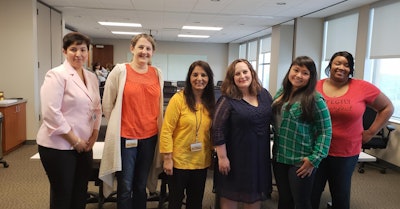 A group of Lawson Products associates at one of the company's Women's Affinity Events in 2018.Lawson Products
A group of Lawson Products associates at one of the company's Women's Affinity Events in 2018.Lawson Products
But we didn’t create this feature just to highlight demographic percentages. Anyone that’s been to a convention in the industrial supply space won’t be surprised by these numbers.
It’s easy to say “maybe women just aren’t applying for jobs in this field at nearly the rate in other industries.” But even if that’s true, one should also ask why that’s the case. Are industrial distribution jobs being promoted equally to both genders? Are certain biases against women resulting in men being picked over women for the same job despite equal qualifications?
I don’t have the answers to these questions, and as a man covering this industry, I don’t consider myself qualified to speak about the experiences, perceptions and outlook that the talented women in this industry have. So, I reached out to a number of women in different roles at industrial distribution or supply roles. Read on to hear from these women themselves:
Industrial Distribution: What do you think distributors could be doing better to attract more women to this job market?
 Lucenti
Lucenti
Tonya Pivarnik, Vice President of Business Development at BlackHawk Industrial: I think that women aren’t seen as a fit for these roles because of the male-dominated customer base. Most decision-making positions are male-dominated except maybe when you are working with a national account or larger company. I think there could be some unconscious bias at play when it comes to making hiring or promotion decisions. As more and more women are put into those positions, I think we will see more women considered for those roles.
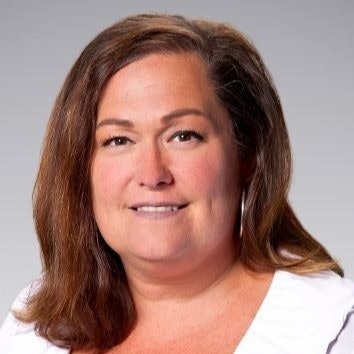 Langdon
Langdon
Lori Mata, Director of Industrial Distribution, US at Norton/Saint-Gobain Abrasives: Distributors should actively advocate for women in the industry. Seek more next-gen women to strengthen their business for the future, recruit from universities with distribution, marketing, engineering programs. We need to make these young women aware of opportunities they may not have considered.
Shannon McCord, Regional Customer Service Manager at BlackHawk Industrial: One way to attract more women to the market would be to show women in various roles. Industrial distribution covers a large variety of roles that women are well suited for: customer service, supply chain, inventory management, information systems, etc.
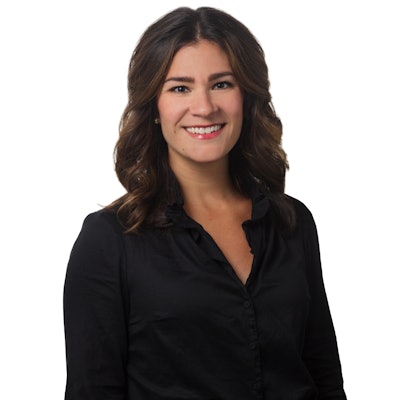 Nielsen
Nielsen
The marketer in me says to go where your target audience goes, like community news boards (for geographically specific roles like sales representatives) and platforms that promote women in business like “Lean In.” Also, women are known for their superior ability to network and influence other women through word-of-mouth testimony. Distributors should enlist their existing female employee base to become advocates for their friends, family, and professional network to consider working at the company.
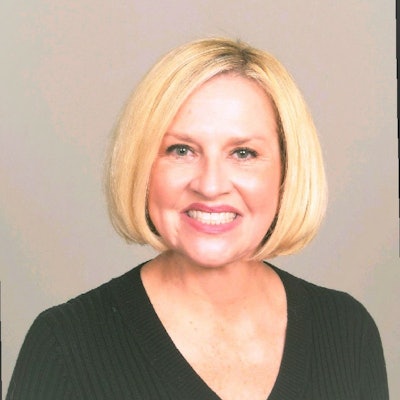 Meuse
Meuse
Product knowledge and culture can be a bit intimidating and a bit “old school”. Many men have been in the machining business for decades. The visual of a woman behind a 5-axis CNC machine does not ring true to many. Many distributors, like any growing business, prefer those with experience or a background in machining, manufacturing, or fabrication. So, without women being in the shop, distributors have a hard time finding women with machining product and procedural experience. If women do have machining experience, they may lack sales expertise. I believe if you have a strong female sales team available, onboarding, education and mentorship from the more experienced individuals would be a great way to open the doors to women in this field. This industry is not for the faint of heart!
Marti Wenzler, Strategic Account Manager at Lawson Products: I think highlighting successful women in the industry in pieces like this is a big plus. It would also be good content to share with a broader audience that might not have exposure to industry publications. Deliberately targeting female prospects with recruiting efforts would also expand awareness of the opportunities for women in our field.
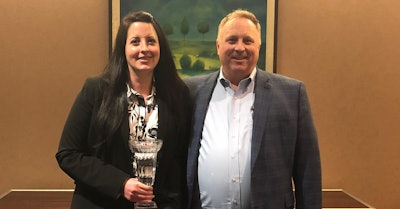 Lawson Products Regional Sales Director Ashley Lucenti with Senior Vice President of Sales Matt Brown after receiving the company's 2018 Founder's Cup — given to the company's top-ranking regional sales director — for a second-straight year.Lawson Products
Lawson Products Regional Sales Director Ashley Lucenti with Senior Vice President of Sales Matt Brown after receiving the company's 2018 Founder's Cup — given to the company's top-ranking regional sales director — for a second-straight year.Lawson Products
ID: What sort of biases in industrial distribution do you think might be holding back an influx of women into this market?
Lucenti, Lawson Products: We know that being able to relate and understand the needs of our customers is important. With that said, I couldn’t picture how I would make myself relevant to the customer when I didn’t even know the difference between a Grade 5 & Grade 8 cap screw. I could have allowed my lack of technical expertise to hold me back. However, I realized that my having technical expertise was not what was most important to the customers. It was my need to understand their challenges and the desire to provide solutions that was most important. Once I accepted that and that the technical aspect could be learned, it made the decision easier.
Pivarnik, BlackHawk Industrial: The products that are sold are for manufacturing shop floors which makes the primary customer base male. I feel that there may be thinking that women can’t understand how these products are used therefore can’t market them.
Langdon, Stellar Industrial Supply: I am not sure that the biases or assumptions around women in industrial distribution are that different than those around women in business in general. I do believe that because of the nature of this industry, change can take longer, but the biases are the same. It is all of the same biases, the standard stereotypes, that hold women back from industrial distribution because the industry is so slow to change. Once you can disprove one standard bias, you can be on the road to make change within an organization — but you need the chance to break through that first one.
 Mata
Mata
McCord, BlackHawk Industrial: I think some of the old-school, male-dominated assumptions about the world of industrial distribution are related to workplace culture. Jobs in industrial distribution can still offer a great work/life balance and family atmosphere which are super important to working women and moms.
Nielsen, Lawson Products: One bias impacting “old school” markets and companies is that they are not flexible and do not have a tolerance for individuals that seek flexible work arrangements (e.g., working from home, flex hours, etc.). This may not only be holding women back but also people of different generations where a sense of physical place at work is less relevant. Companies in our industry should assess the status of their culture and technologies so they can adapt to the evolving needs of employees in the job market.
Another obstacle may be the lack of support or resources provided by an “old-school” company for a more diverse employee base to flourish. At Lawson I am an adviser to the Women’s Affinity Group. This community of women comes together to provide programming and career resources in a way that’s particularly relevant to women seeking success in our company and gives them a place to share and learn with like-minded colleagues. Affinity groups and special-interest groups like this can help foster a sense of belonging within a company where they are the minority.
Meuse, BlackHawk Industrial: Biases against women in this industry include the notions that: Women need to be tough to be successful in this industry; Women should know more than men to be considered wise or equal; Women cannot be themselves — they wouldn’t know how to relate to their customer.
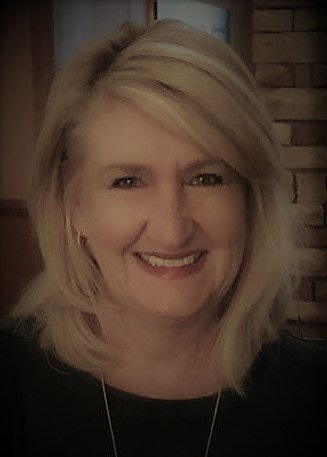 Wenzler
Wenzler
ID: What encouraging signs or developments have you seen recently, if any, that point to progress in terms of recruiting more women into this industry or representing them better?
Lucenti, Lawson Products: Within our organization we have created the Women’s Affinity Group (WAG). This platform helps us to better connect with the women of our organization. The WAG of Lawson Products hosts a Microsoft Teams community, which is an excellent way to have your questions answered, share success stories, discuss best practices, provide tips surrounding work/life balance and even share gender-specific challenges in our industry. Our Women’s Affinity Group also hosts quarterly events. This community provides an added level of support to ensure future success in this industry.
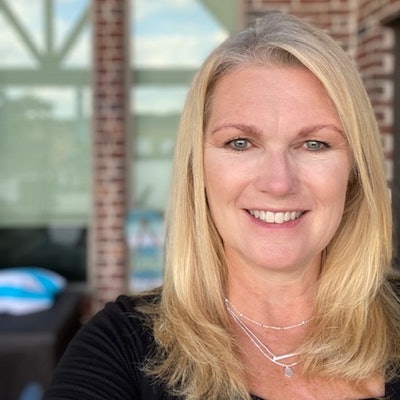 Pivarnik
Pivarnik
Langdon, Stellar Industrial Supply: I am encouraged by the number of women’s groups within the industrial supply channel, which tells me not just that women are organizing together to push through some inherent old school challenges but that there ARE in fact, slowly but surely, more women being hired into the industrial distribution space. As part of a women’s networking group myself, we have seen our membership grow and thrive over the last 5 years and see more growth on the horizon.
Mata, Norton/Saint-Gobain Abrasives: I do see encouraging signs; savvy business owners know the ROI in diverse teams, more innovation, collaboration, and growth. Also, thinking of their bench of growth candidates, in 5 years, 62 percent of college graduates will be women and diverse candidates; they need to adapt now.
 McCord
McCord
Nielsen, Lawson Products: I’ve not seen any macro-changes in the industry to indicate systemic progress is being made, however, respected institutions like Industrial Distribution giving this topic space is an important point of progress. From a marketer’s perspective, if you’re looking to bring more diversity (whether gender, race, economic, etc.) into your workforce, the people putting together the recruiting strategies and tactics should reflect that diversity and be able to think in terms of the individuals they’re looking to attract.
Meuse, BlackHawk Industrial: I was in a shop the other day, where there was a woman welder and a fabricator and female company president. There are tax-incentives for women-owned businesses. If more women knew about this, I’m sure more women would be willing to take the risk and open a shop of their own.
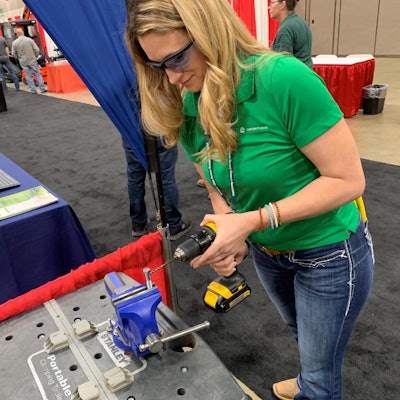 A Lawson Products associate demonstrating a product at a 2019 industrial products expo.Lawson Products
A Lawson Products associate demonstrating a product at a 2019 industrial products expo.Lawson Products
ID: What advice do you have for women and/or men considering a career in industrial distribution sales?
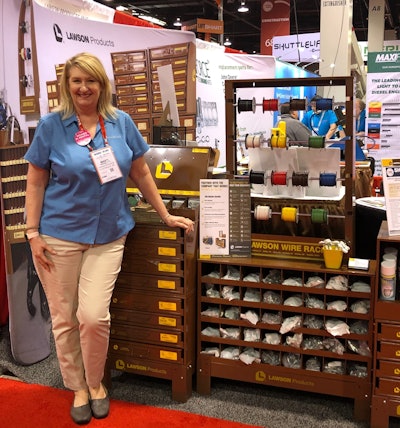 Lawson Products Strategic Account Manager Marti Wenzler at a recent industrial products expo.Lawson Products
Lawson Products Strategic Account Manager Marti Wenzler at a recent industrial products expo.Lawson Products
Pivarnik, BlackHawk Industrial: A) Don’t be intimidated by what you don’t know. Be confident in whatever role you choose. B) Learn the products and how they are used; C) More importantly, learn the business and how to turn a profit.
Langdon, Stellar Industrial Supply: The world of industrial distribution offers a wide range of opportunities in many different areas of business — from finance to sales and technology to HR. My advice, if you are choosing a career path in the business world, would be to seize the opportunity to make an impact on the industry — bringing skills and insights only a woman can offer.
Mata, Norton/Saint-Gobain Abrasives: The industrial supply channel has many excellent opportunities. Start early, seek out role models, set career goals and make them known.
Nielsen, Lawson Products: I’ll give two pieces of advice. The advice I would have given before the pandemic and the advice I’ll give having gone through the pandemic. The experiences of this past year have changed people’s perceptions and mindsets in many ways. I know my perspective on the role of work in my life, the company I work for, and the way I perform my work has changed. If I could give one piece of advice to someone looking for longevity and purpose in their career it would be to first consider essential industries and companies. Industrial distribution is an essential industry that helped continue the critical operations of our communities despite the overall challenges our economy faced. My continuous employment throughout this difficult time is due in great part to the overarching importance of the products and services essential industries provide.
Before the pandemic, I would have said (and would still say) that being in an industry that isn’t known for being cutting edge like tech or consumer packaged goods gives you the opportunity and latitude to incite change. For anyone who seeks to be a part of evolving big things like business processes, go-to-market models, and the use of technology, industrial distribution can give you fertile ground to cultivate purpose and excitement in your career.
Meuse, BlackHawk Industrial: If you’re interested in this field, get an internship in an office where there is a purchasing department to get to know products, ask to shadow some people on the shop floor, take as many sales classes, seminars and webinars as possible…Watch YouTube machining, manufacturing and product appropriate videos to get familiar with the language of manufacturing. Get in on the ground floor or even possibly inside sales of a distributor to get a feel for the position. Reach out to people that have manufacturing knowledge, referrals or history in this field. And above all, ask questions!
Wenzler, Lawson Products: Don’t lean… jump in! I often think of my experience in other industries early in my career and am still so thankful to have been given this opportunity. The recent pandemic has proven more than anything that this is a thriving, viable, essential industry and that we make a difference for our customers every day.
View from Human Resources
ID: What are the biggest changes you have seen in sales recruiting, especially for recruiting women?
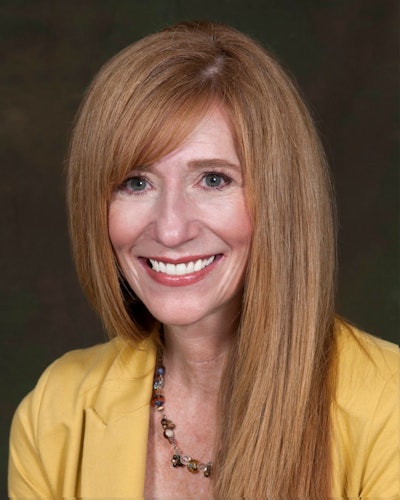 Eaglebarger
Eaglebarger
What are the current trends for recruiting women sales reps to the industry?
Eaglebarger: While industry and product knowledge are a plus, it is not a requirement. Looking for candidates, women including, who have a proven track record of selling, or show the capability to do so, is more important than product knowledge. This helps in bringing women into the MRO world.
View from Education
ID: Do you know what percentage of UNK's Industrial Distribution undergraduates or graduates are female?
Alejandro Cahis, Lecturer of Industrial Distribution at University of Nebraska at Kearney: Historically we have always been at around a 10 percent. It might fluctuate from time to time, but always stays pretty close to that number.
ID: What can you say about how UNK has gone about recruiting women into its program and any successes seen?
 Cahis
Cahis
ID: What do you think distributors themselves could be doing better to attract more women to this job market?
Cahis: A lot of women’s concerns are with compatibility between their work life and personal life. They often think that having a 9-5 job is more compatible with having a family, when in reality, especially in an outside sales role, for example, they have more opportunities to spend time with their families or whatever it is they need to do. That flexibility depends on how organized they are with their time and their tasks, and one of women’s strong suits is how organized they are. That is something they could definitely use as a tool for recruitment or attracting more women into the industry. Show what the benefits are for them and tailor the message to their needs. It’s a very simple sales job: Find their needs, find their doubts and answer that for them. The tough part there is getting all those questions, their concerns or “objections”.
ID: What encouraging developments have you seen on this front?
Cahis: I have seen a lot of women rising to top levels in the industry. I think this is great when it comes to looking for those success stories to share when trying to recruit more of them. We need to make the industry more visible. Unfortunately, industrial distribution or technical sales doesn’t have its own TV show, so no girl grows up wanting to be a technical sales professional. Instead, they grow up watching shows with teachers, nurses, doctors, lawyers, just to name a few. So seeing news about women rising to top levels in the industry, taking charge and guiding their companies to success is a great tool for recruitment and promotion.












